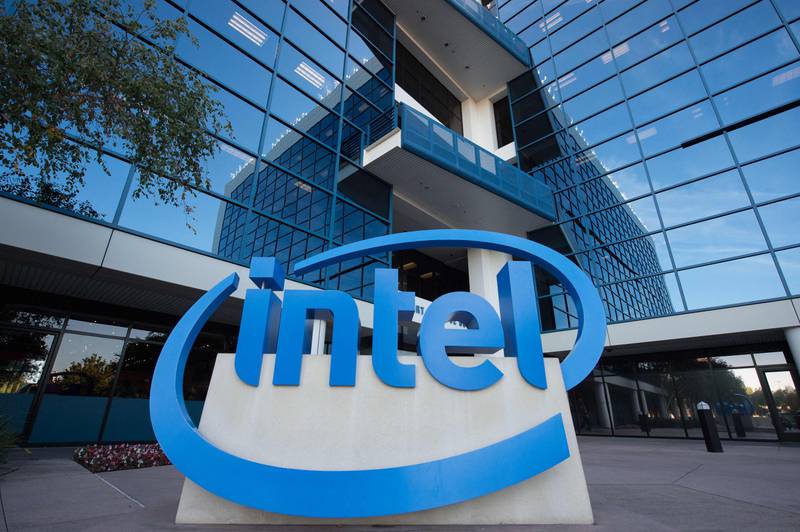Intel and Brookfield to jointly invest $30bn to boost chip manufacturing

Collected Image
Intel, the world's largest chip maker by revenue, has joined forces with Brookfield Asset Management’s infrastructure affiliate to build semiconductor fabrication facilities in the US.
Under the agreement, the companies will jointly invest up to $30 billion in Intel’s previously announced manufacturing expansion through two new factories at its Ocotillo campus in Chandler, Arizona. Intel will fund 51 per cent of the project, while Brookfield will finance 49 per cent. The transaction is expected to close by the end of the year, subject to customary closing conditions, Intel said on Tuesday.
Intel will retain majority ownership and operating control of the two new chip factories in Chandler, which will support the long-term demand for its products, the company said.
Semiconductor manufacturing is among the most capital-intensive industries in the world, and Intel’s IDM 2.0 strategy — the evolution of its integrated device manufacturing model, starting with the new factories — demands a unique funding approach, Intel’s chief financial officer David Zinsner said.
“This landmark arrangement is an important step forward for Intel’s smart capital approach and builds on the momentum from the recent passage of the Chips Act in the US,” Mr Zinsner said.
Semiconductor manufacturers were faced with an unprecedented demand for chips owing to the effects of the Covid-19 pandemic, which propelled sales — most notably for consumer electronics — as people were forced to stay at home.
The health crisis hugely disrupted semiconductor shipments as global demand skyrocketed, causing a supply chain breakdown.
Global semiconductor revenue is projected to grow at a slower than expected pace this year, with the crunch in the industry extending well beyond 2022, a study last month by Gartner found.
The chip market will reap about $639bn in revenue this year, clocking a 7.4 per cent growth, almost half the growth rate the US research company forecast in May, when the revenue expectation was $676bn.
“Our agreement with Brookfield is a first for our industry, and we expect it will allow us to increase flexibility while maintaining capacity on our balance sheet to create a more distributed and resilient supply chain,” Mr Zinsner said.
Intel’s partnership with Brookfield is expected to enhance the company’s strong balance sheet by allowing the chip maker to tap into a new pool of capital.
Over the next few years, the structure is expected to provide a $15bn cumulative benefit to Intel’s adjusted free cash flow, the company said. “By combining Brookfield's access to large-scale capital with Intel’s industry leadership, we are furthering the advancement of leading semiconductor production capabilities,” Sam Pollock, chief executive of Brookfield Infrastructure, said.
The investment “will form part of the long-term digital backbone of the global economy”, Mr Pollock said.
Under the agreement, the companies will jointly invest up to $30 billion in Intel’s previously announced manufacturing expansion through two new factories at its Ocotillo campus in Chandler, Arizona. Intel will fund 51 per cent of the project, while Brookfield will finance 49 per cent. The transaction is expected to close by the end of the year, subject to customary closing conditions, Intel said on Tuesday.
Intel will retain majority ownership and operating control of the two new chip factories in Chandler, which will support the long-term demand for its products, the company said.
Semiconductor manufacturing is among the most capital-intensive industries in the world, and Intel’s IDM 2.0 strategy — the evolution of its integrated device manufacturing model, starting with the new factories — demands a unique funding approach, Intel’s chief financial officer David Zinsner said.
“This landmark arrangement is an important step forward for Intel’s smart capital approach and builds on the momentum from the recent passage of the Chips Act in the US,” Mr Zinsner said.
Semiconductor manufacturers were faced with an unprecedented demand for chips owing to the effects of the Covid-19 pandemic, which propelled sales — most notably for consumer electronics — as people were forced to stay at home.
The health crisis hugely disrupted semiconductor shipments as global demand skyrocketed, causing a supply chain breakdown.
Global semiconductor revenue is projected to grow at a slower than expected pace this year, with the crunch in the industry extending well beyond 2022, a study last month by Gartner found.
The chip market will reap about $639bn in revenue this year, clocking a 7.4 per cent growth, almost half the growth rate the US research company forecast in May, when the revenue expectation was $676bn.
“Our agreement with Brookfield is a first for our industry, and we expect it will allow us to increase flexibility while maintaining capacity on our balance sheet to create a more distributed and resilient supply chain,” Mr Zinsner said.
Intel’s partnership with Brookfield is expected to enhance the company’s strong balance sheet by allowing the chip maker to tap into a new pool of capital.
Over the next few years, the structure is expected to provide a $15bn cumulative benefit to Intel’s adjusted free cash flow, the company said. “By combining Brookfield's access to large-scale capital with Intel’s industry leadership, we are furthering the advancement of leading semiconductor production capabilities,” Sam Pollock, chief executive of Brookfield Infrastructure, said.
The investment “will form part of the long-term digital backbone of the global economy”, Mr Pollock said.
Source: https://www.thenationalnews.com